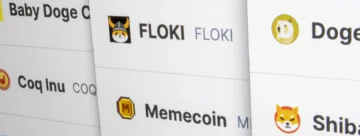What Is Ethereum? Specifics and Features

What Is Ethereum?
Ethereum is the name of the worldwide network of computing machines and the protocol that connects and synchronizes this network. The network itself is decentralized, in other words, it has no single center or owner.
Ethereum is not a cryptocurrency, but rather a kind of software environment. Its peculiarity is that applications are not running on a separate server but on the network itself, which increases the reliability of these applications.
Read more about Ethereum tokens: https://coinspaidmedia.com/academy/ethereum-token-standards-features-and-possibilities/
What Is Ether?
Ether is the cryptocurrency coin associated with the Ethereum network. In what’s called mining, users are rewarded in ether when they lend the computational power of their PC to perform mathematical equations that keep the system working.
Programmable Money
The Ethereum blockchain is the open-source software code of the applications that run on it. It’s a distributed database that is available to all members of the network. Ethereum applications can only work within it and aren’t supposed to change the code except under the terms initially provided by the developers. These are programs with smart contracts that, for example, set conditions for exchanging Ethereum tokens. The execution of such contracts doesn’t require human involvement.
This mechanic is called “programmable money.”
About Smart Contracts
Smart contracts define the agreement terms between the parties involved, whose execution is controlled by fixing the information found within a block in the blockchain. In fact, the contract is not a traditional one by any means, but rather an algorithm or code. It’s called a “smart” contract because the agreement execution confirmation and, for example, the transfer of ownership from one user to another takes place automatically, without human intervention.
An important detail: implementing smart contracts requires an environment in which the executable code has unrestricted access to contract objects. The role of the environment is played by a distributed virtual machine that runs on Ethereum protocols.
Ethereum Tokens
A token is a record in the ledger that is distributed on the blockchain. In Ethereum’s specific case, not only ether coins but also other user assets can act as tokens. This is possible due to smart contracts, which specify information about the asset. If desired, the user can back the token by physical assets, securities, stocks, etc.
Ethereum tokens allow software developers to implement “their” Ether-based currencies by creating new blockchains and specifying parameters such as:
- availability and division depth;
- emission method;
- issuance volume;
- interchangeability, etc.
This allows tokens to be used, for example, as means of payment in a separate application running in the Ethereum environment.
The most advanced protocol for creating tokens based on Ethereum is considered ERC-20. Assets based on it are called ERC-20 tokens.
How Ethereum Works
Essentially, Ethereum works via the execution of smart contracts. A transaction created manually by a user or another contract automatically activates a smart contract’s implementation. The EVM transforms smart contracts into a kind of instruction that is read by networked computers.
When a transaction is activated, all nodes run the contract code and capture the output. The overall network state is updated using Proof of Work algorithms.
In this way, all nodes in the network constantly update the overall state of the system, reflecting and recording the changes occurring in it: user balances, active smart contracts, and their actual status in that instance.
The operation of the Ethereum system is associated with a state machine, the most straightforward description of which is some mathematical abstraction represented as a finite set of states, events and transitions from current to new states depending on the occurring event.
Read about Ethereum upgrade: https://coinspaidmedia.com/columns/ethereums-upgrade-pros-cons/
About Gas in Ethereum
Gas was introduced to protect the system from the overload associated with the need to execute multiple contracts simultaneously. In fact, it’s analogous to the additional transaction fee in the Bitcoin system. The contract spells out the amount of gas that a user must pay to activate the contract.
Gas is a measure of the computational load on the system required to implement the contract. Complex contracts require more gas than an average transaction. The cost of gas is constantly changing. The higher the system load, the more you have to pay to make the contract work.
The contract specifies a gas limit, an amount the participant is not willing to allocate more than that for the transaction. If due to circumstances, the price of gas rises sharply, the contract will not be processed and the user will not have to overpay.
Gas is paid for in ETH.











